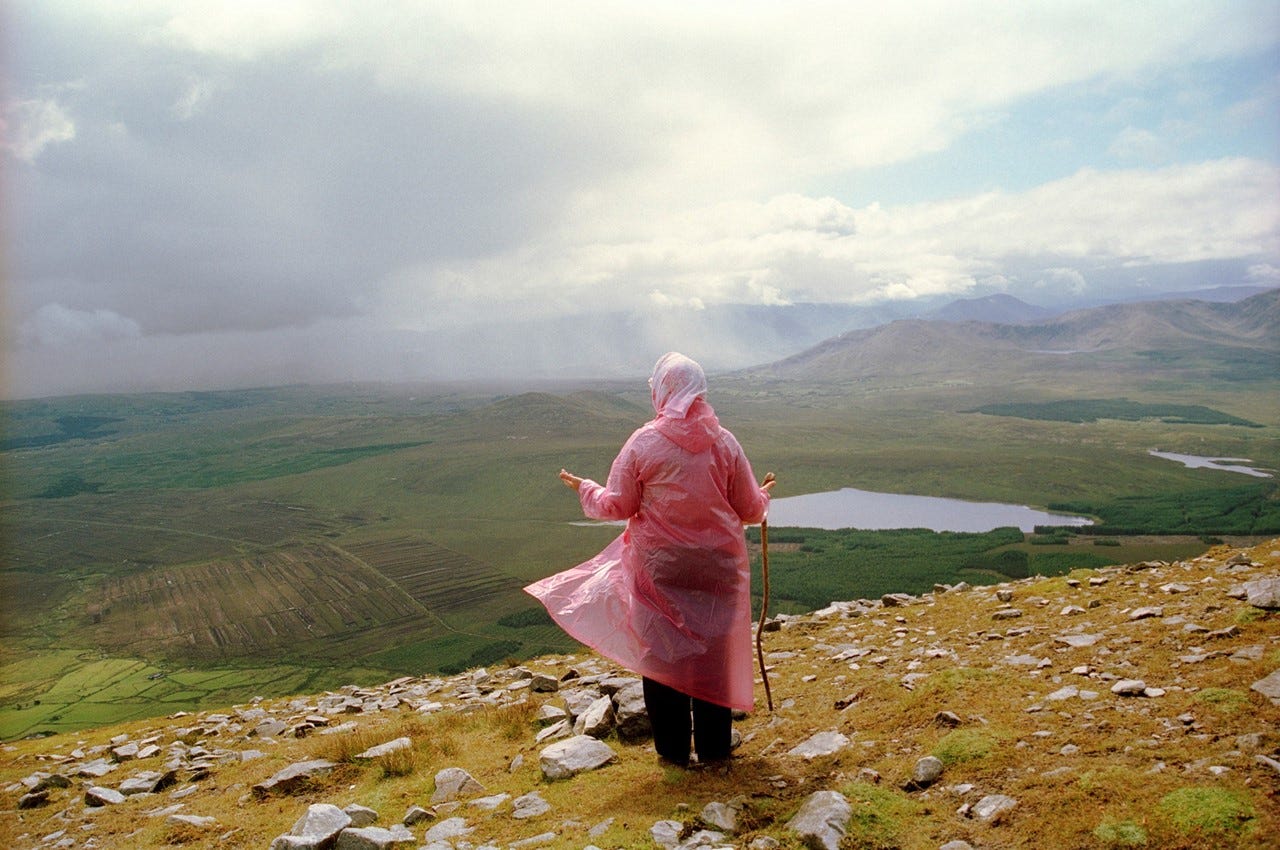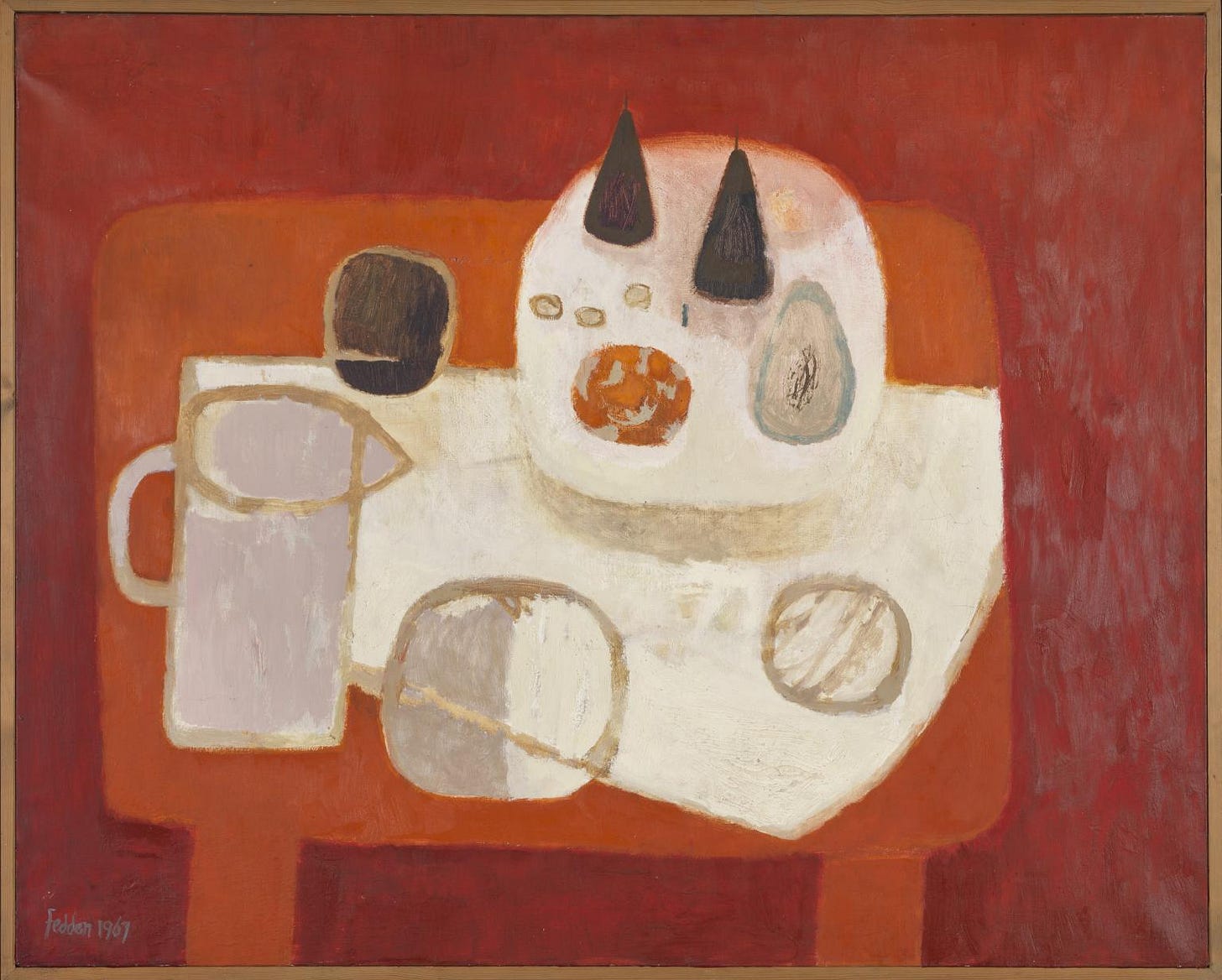Interesting Times No. 2
A Brooklyn limousine; peak California; Italian asylums; Ronald McDonald; humiliation; AI; The Apology Line; Jonathan Franzen
Hello, and welcome to the second edition of Interesting Times. Thanks to all who’ve signed up! I’m here to recommend content that’s both new and old, highbrow (maybe?) and lowbrow, every fortnight - I hope you enjoy.
JOURNALISM
“A Theory of My Own Mind: Knowing the content of one’s own mind might seem straightforward but in fact it’s much more like mind reading other people".
“Back-seat hijinks: For nine months in 1989, the American photographer Kathy Shorr drove a stretch limousine and found rich material for a series capturing working-class Brooklyn in high celebration mode.”
“Put on the Diamonds”, an essay on humans and humiliation. “A psychiatrist who interviewed a group of men imprisoned for murder and other violent crimes asked each of them why he had done it. In almost all cases the answer was “He dissed me.” On the other hand, I have a cousin, a doctor, who feels humiliated if he’s shortchanged in a grocery store.”
I believe we have reached peak California.
Beautiful and interesting art created by children and teens. Is there anything as wonderful as seeing children just creating; their minds whirring? Complete magic.
Speaking of children: this piece, “Like Tomboys and Hate Girlie Girls? That’s Sexist” on how “we need to stop maligning femininity, in both girls and boys”, speaks some real truths. Having a daughter who has never been into ‘girlie girl’ things, I’ve noticed how much I’ve been congratulated for that, especially when she was younger. It was seen as somehow better that she preferred to dress up as a lion, and run around the house roaring, rather than love Barbie and princess dresses. It sat uneasily with me, and the article above articulates why incredibly well.
How exciting! How interesting! “Researchers excavating a cave network on the Rock of Gibraltar have discovered a new chamber, sealed off from the world for at least 40,000 years, that could shed light on the culture and customs of the Neanderthals who occupied the area for a thousand centuries.” A THOUSAND CENTURIES! And another discovery, this time in Scotland.

A piece on the closure of Italy’s asylums: “Italy’s asylums were closed down by the people who worked inside them. In doing so, these people abolished their own jobs – forever. Nobody, today, is the director of a psychiatric hospital in Italy. The movement acted against its own self-interest – in a way that was the opposite of clientelism, patronage and nepotism. It was a negation of itself.”
It’s hard being a teenager, my god - you need all the help you can get. The New Yorker asks, “Could the Teen Magazine Rise Again? Instagram and TikTok erased the authority of the traditional teen magazine, but teenagers still want guidance and a community.” (The irony is not lost on me that the lovable, but very dorky New Yorker, is writing about teens, Instagram and TikTok.)
“The Death of Ronald McDonald. At one point, the fast food mascot was more recognizable than Jesus Christ. What happened?” Answers here. And more on death, but this time it’s more a slow death of the soul: “The planet is dying but you still have to pay this amount of money to live on it. Society is terminally unwell. This room in Cricklewood proves it.”

Dead American Writers, 2020, Sanam Khatibi. Hand-woven wool tapestry. “Katalin Kariko, a senior vice president at Germany’s BioNTech who lives in the Philadelphia suburbs, spent decades on her quest to turn basic biology into medicine. The Pfizer-BioNTech and Moderna Covid-19 vaccines both depend on the modified RNA that Kariko and [immunologist Drew] Weissman discovered.” Give this woman a medal, for god’s sake!
When the mighty fall.
A grand home, should you be in the market for one.
Ooohhhh, this is interesting. ‘Who Is the Bad Art Friend? Art often draws inspiration from life — but what happens when it’s your life? Inside the curious case of Dawn Dorland v. Sonya Larson.”
Very vaguely related to journalism: I’m on an eternal quest to find the most Daily Mail of Daily Mail headlines. This one: ‘Mental health nurse, 58, who 'threw a sickie so she could get the blood cleaned off the seats of her NHS-funded company car after her son kneecapped a love rival with a shotgun' faces up to ten years in jail’ is pretty good, because it covers one of the absolute essentials of a true DM headline, and that is utter disgust at the perceived misuse/abuse of taxpayer money. It’s also so long that you can’t really follow what it’s actually saying, which is classic DM, so it’s definitely ticking some boxes. Other things that are ticking boxes are ‘love-rival’ and stating the woman’s age. However, it is missing one essential DM headline characteristic: THE PRICE OF THE CAR! The Daily Mail has a compulsion, an aching need, to say how much every little thing costs, and so with this headline, they dropped the ball. I’m giving it 4.5/5 - good, but can do better.
BOOKS
Jonathan Franzen has a new book, Crossroads, out. Having not enjoyed any of his novels since The Corrections (his book of essays, How to be Alone, was great), I was anticipating disappointment. But this review and a couple of others I’ve read (am yet to get my grubby paws on the actual book) say to expect great things: “Jonathan Franzen’s outsize reputation as a crank means that to his critics, he’s come to seem like a walking chain email on the evils of social media, and it has often tended to occlude his equally outsize reputation as a great writer. So loud is the conversation about him that it is sometimes hard to see the forest for the Franzenfreude. Crossroads is good enough to overwhelm that conversation. The book is deceptively simple, merciless without being cruel, and thrilling in its sheer fury. Haters and his own often-insufferable public persona be damned [he does come across as a bit of a bore, blathering on about bird-watching at every opportunity]: Jonathan Franzen really is one of the great novelists of his generation. Crossroads stands ready and willing to prove it.” Goody!
“Kate Crawford is a leading artificial intelligence researcher who makes a startling claim: AI is neither artificial nor intelligent. Both of those misperceptions are important, she argues, because they lead people to overlook or minimize AI’s social costs.” In the video below Crawford discusses the ideas explored in her new book, ‘Atlas of AI: Power, Politics, and the Planetary Costs of Artificial Intelligence’. This is pretty dense, but very interesting.
Please, no judgement, but I’ve gone on a deep dive into a very specific genre: forensic pathology memoirs. Here are the ones I’ve read, if forensic pathology memoir is (about to become) your thing. The Seven Ages of Death and Unnatural Causes, both by Dr Richard Shepherd, and The Quick and the Dead and The Cause of Death, both by Dr. Cynric Temple-Camp. (I’d recommend Shepherd over Temple-Camp - he’s just more insightful and self-reflective.) My excuse is that this genre lifts the veil on some aspects of death, and isn’t that a good thing? Maybe.
The Guardian’s Top 10 novels of the 1930s, and Top 10 books about the aftermath of empire.
“New Zealand life, silently. Steve Braunias reviews a collection of essays by an extraordinary writer.”
Sometimes there’s a reason a book is a best-seller, a hit, a sensation and Convenience Store Woman by Sayaka Murata is a book that deserves all its accolades. Described as “a love story between a misfit and a store”, it’s sharp, engaging, funny, and I highly recommend.

PODCASTS
THE APOLOGY LINE: “If you could call a number and say you’re sorry, and no one would know…what would you apologize for? For fifteen years, you could call a number in Manhattan and do just that. This is the story of the line, and the man at the other end who became consumed by his own creation. He was known as “Mr. Apology.” As thousands of callers flooded the line, confessing to everything from shoplifting to infidelity, drug dealing to murder, Mr. Apology realized he couldn’t just listen. He had to do something, even if it meant risking everything. Marissa Bridge, who knew Mr. Apology better than anyone, hosts this six episode series.”
A HISTORY OF THE WORLD IN 100 OBJECTS: “Director of the British Museum, Neil MacGregor, narrates 100 programmes that retell humanity's history through the objects we have made.”
THE IMMACULATE DECEPTION: “Fertility doctor Jan Karbaat was renowned for getting amazing results. Women who were desperate for children would visit him at his Rotterdam clinic and leave pregnant. But when the clinic closed, rumours began about the methods Karbaat used to achieve his success. The children conceived at the clinic - the Karbaat Kids - began asking difficult questions about what happened to their mothers. What happened in Dr Karbaat’s clinic?”
IT’S BEEN A MINUTE WITH SAM SANDERS: “Forty years ago this month, the CDC reported on patients with HIV/AIDS in the United States for the very first time.” In this episode, writer and activist Sarah Schulman talks about ACT UP, the AIDS/HIV activism group founded in 1987, and “explains the movement's history and explores how the group's activism transformed the way the media, the government, corporations and medical professionals talked about AIDS and provided treatment.”

Thanks for reading. See you in a fortnight,
-Ellie







